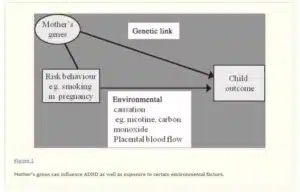This study examines the impact of hyperbaric oxygen stimulates neurogenesis and inflammation after stroke in rats. The results show that longer-duration HBO treatment (three weeks) is more effective than shorter-duration treatment (two days) in improving BMSC migration and promoting the expression of neurotrophic factors. This suggests that prolonged HBO therapy may enhance the therapeutic effects on ischemic stroke, potentially aiding in neuronal repair.
Several studies have provided evidence with regard to the neuroprotection benefits of hyperbaric oxygen (HBO) therapy in cases of stroke, and HBO also promotes bone marrow stem cells (BMSCs) proliferation and mobilization. This study investigates the influence of HBO therapy on the migration of BMSCs, neurogenesis, gliosis, and inflammation after stroke. Rats that sustained transient middle cerebral artery occlusion (MCAO) were treated with HBO three weeks or two days. The results were examined using a behavior test (modified neurological severity score, mNSS) and immunostaining to evaluate the effects of HBO therapy on migration of BMSCs, neurogenesis, and gliosis, and expression of neurotrophic factors was also evaluated. There was a lower mNSS score in the three-week HBO group when compared with the two-day HBO group. Mobilization of BMSCs to an ischemic area was more improved in long course HBO treatments, suggesting the duration of therapy is crucial for promoting the homing of BMSCs to ischemic brain by HBO therapies. HBO also can stimulate expression of trophic factors and improve neurogenesis and gliosis. These effects may help in neuronal repair after ischemic stroke, and increasing the course of HBO therapy might enhance therapeutic effects on ischemic stroke.
FAQs
- What is hyperbaric oxygen therapy (HBO)?
- Hyperbaric oxygen therapy involves breathing pure oxygen in a pressurized chamber. It is used to treat various medical conditions, including ischemic stroke.
- What is meant by a “long-course” of HBO therapy?
- A long-course of HBO therapy refers to an extended duration of treatment, typically lasting several weeks, as opposed to short-term treatment that may last only a few days.
- What is neurogenesis, and why is it important in stroke recovery?
- Neurogenesis is the process by which new neurons are formed in the brain. After a stroke, promoting neurogenesis is essential for brain repair and functional recovery.
- How does HBO therapy stimulate neurogenesis?
- HBO therapy may enhance neurogenesis by increasing oxygen levels in the brain, which can promote the growth of new neurons and repair damaged brain tissue.
- What is inflammation in the context of ischemic stroke, and how does HBO therapy help attenuate it?
- Inflammation is the body’s response to injury. In the case of ischemic stroke, excessive inflammation can worsen brain damage. HBO therapy may help reduce inflammation by providing higher oxygen levels, which can improve tissue healing and reduce inflammation.
Conclusion:
In summary, long-course hyperbaric oxygen therapy appears to have promising effects on post-ischemic stroke recovery. This treatment stimulates neurogenesis, the formation of new neurons, and attenuates inflammation, which are critical factors in the brain’s healing process. The extended duration of HBO therapy seems to be particularly beneficial in promoting the migration of bone marrow stem cells and the expression of neurotrophic factors, thus enhancing the potential for neuronal repair after ischemic stroke. Further research and clinical studies are needed to validate and refine these findings, but they offer hope for improved therapeutic strategies in the management of ischemic stroke.




